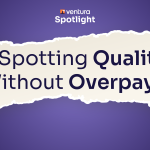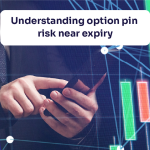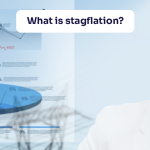What is it with diamonds? Why do they fascinate us so?
A symbol of opulence and allure, strength and permanence...diamonds are forever, literally and proverbially.
From ancient times till today, diamonds speak to humans and on their behalf; the larger they are, the louder they shout, “They person wearing me, has arrived!”
With the festival season upon it, we look at an unusual way to invest in diamonds – electronically. We’re also discussing how someone with a low budget but the patience to invest regularly could own excellent quality diamonds over time.
India was the world’s original source of diamonds. In the 1400s, Indian diamonds were sold in Venice and other European trade centers. Then in the 1700s, India’s diamond supplies declined and Brazil became the world’s major source of diamonds, until the late 1800s when a huge diamond reserve was discovered in South Africa. Today, diamonds are mined in many parts of the world.
Today, globally, consumer demand accounts for 95% of the diamond market; investment diamonds account for less than 5% of the total value of polished diamonds. China, India and the US are major diamond jewellery consumers, driving rough-diamond demand. Being practically indestructible, with the potential to be stored for perpetuity without any deterioration in quality over time, the diamond is a good instrument for storing the value of wealth. Additionally, as they are low maintenance and accepted across the world, they are sometimes accepted as an alternative currency.
India is the world's third largest diamond consumer with an 8% market share. Annually, India imports around $18 billion worth of 'rough diamonds' and exports around $24 billion of cut and polished diamonds. Diamond imports and exports continue throughout the year but domestic sales increase during the festival and marriage season.
In 2017, the Indian Commodity Exchange (ICEX) became the world's first exchange to launch derivate trading in certified diamond. The exchange has kept the trading and delivery size low to attract participation by all types of business units from small traders to large exports (like brokers, sight-holders, traders, processors, suppliers, stockists, retailers like jewellery manufacturers). Participants can trade and take delivery with as little as Rs. 3500 per unit approximately.
Being an exchange-traded commodity, the quality of the diamonds is assured as only stones graded by IIDGR – DeBeers are accepted.
Another benefit that trading on ICEX delivers is that it makes staggered buying possible due to the electronic platform. Most importantly, diamond derivative trading, like other trades on the exchange, is regulated by the Securities& Exchange Board of India (SEBI).
Diamonds traded on the ICEX reflect wholesale market prices as the price derived on ICEX is ex-Surat (the delivery centre), which is, interestingly, the global centre for diamond cutting and polishing; around 90% of 'rough' diamonds mined across the world are sent there for cutting and polishing.
This offers investors a genuine advantage as the gap between the wholesale and retail price of polished diamonds varies in the range of 30 to 40%.
One may wonder how liquid the electronic market for diamonds is. Well, the Daily diamond turnover on ICEX has been increasing since November 2018 as can be seen from the chart below…
Source: ICEX, Ventura Securities Ltd
ICEX provides retail investors and buyers with a Systematic Investment Plan (SIP) through which they can acquire this precious stone. Just like in the case of Mutual funds and Gold funds, it is possible to buy diamonds through ICEX too. A retail investor can start a SIP with a nominal amount and buy and take delivery of the electronic units. This could be a great way to accumulate quality diamonds without feeling the pinch.
The SIP amounts vary depending on the size of the diamond you are investing, i.e., 30 cents to 1 Carat. For 30-cent diamonds, as per current prices, each cent would cost Rs 1000. Naturally, you would have to invest for a period of 30 months or 2 ½ years to accumulate a 30-cent diamond.
Fortunately, there is no penalty if you do not pay your SIP amount in any particular month.
Note: To invest in the diamond SIP scheme, you have to open an account with a broker on the ICEX, complete the KYC process and deposit some money.
You May Also Like: What is Side Pocketing and how does it work?
Disclaimer:
We, Ventura Securities Ltd, (SEBI Registration Number INH000001634) its Analysts & Associates with regard to blog article hereby solemnly declare & disclose that:
We do not have any financial interest of any nature in the company. We do not individually or collectively hold 1% or more of the securities of the company. We do not have any other material conflict of interest in the company. We do not act as a market maker in securities of the company. We do not have any directorships or other material relationships with the company. We do not have any personal interests in the securities of the company. We do not have any past significant relationships with the company such as Investment Banking or other advisory assignments or intermediary relationships. We are not responsible for the risk associated with the investment/disinvestment decision made on the basis of this blog article.

Diwali = Laxmi Puja = Wealth Creation
3 min Read Nov 4, 2021
In Conversation with Dharmendra Satapathy
4 min Read Apr 20, 2021
2 Minute SIP Challenge Liya Kya?
2 min Read Sep 7, 2020
Should you discontinue your SIPs?
4 min Read May 18, 2020
Use SIPs in equity Mutual Funds to lighten the burden of a housing loan
3 min Read Dec 13, 2019
Revisiting the Gold-Silver Ratio Amid Silver's Outperformance
4 min Read Dec 22, 2025
Midcaps: Sweet Spot or Danger Zone? | What HSBC MF’s Cheenu Gupta Thinks | Ventura Spotlight
4 min Read Dec 17, 2025
Understanding Option Pin risk near expiry
4 min Read Dec 12, 2025
EPS in the Stock Market
4 min Read Dec 12, 2025
What is stagflation?
4 min Read Dec 10, 2025
Post your comment
You must be logged in to post a comment.